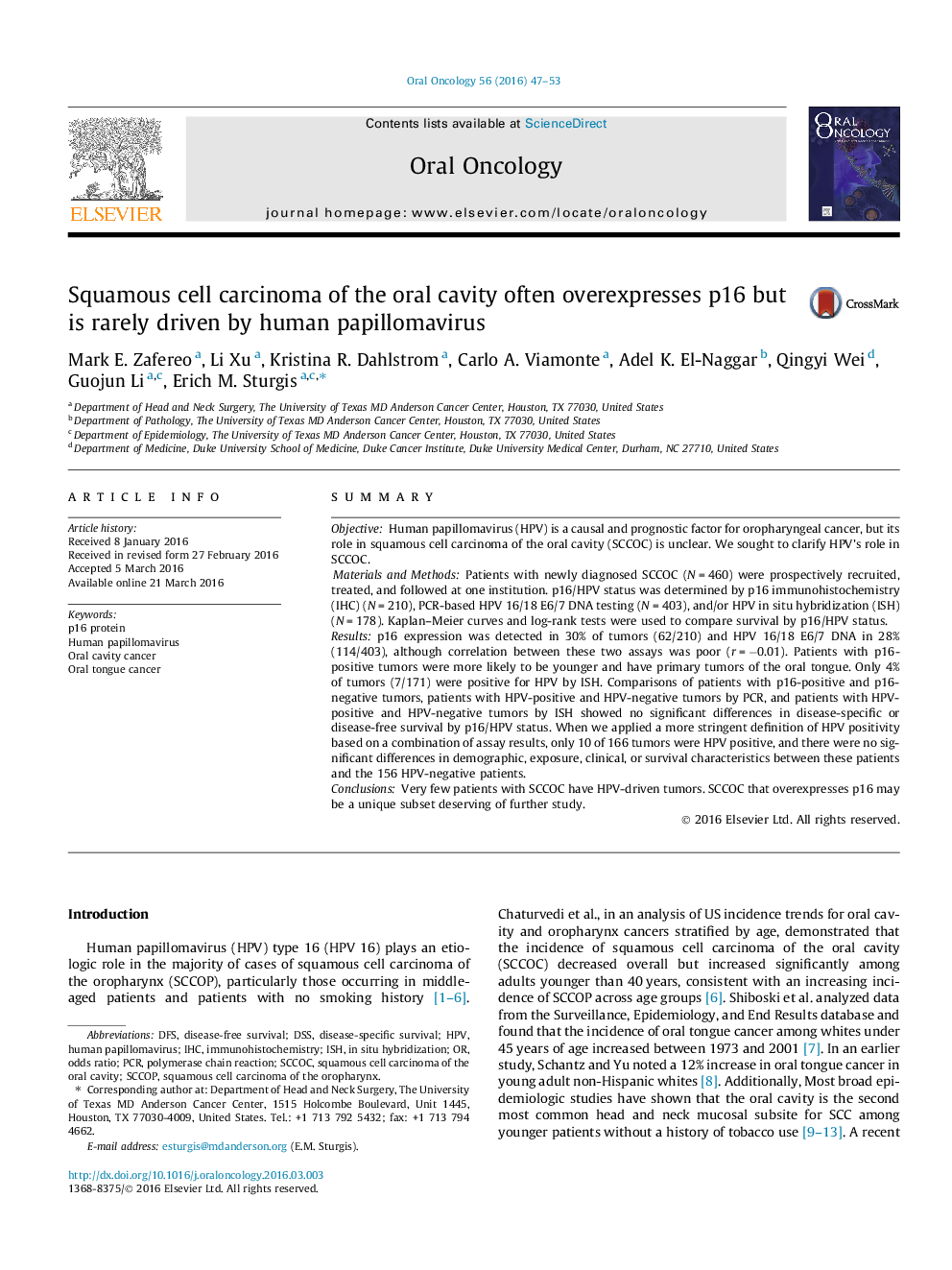| کد مقاله | کد نشریه | سال انتشار | مقاله انگلیسی | نسخه تمام متن |
|---|---|---|---|---|
| 3163861 | 1586254 | 2016 | 7 صفحه PDF | دانلود رایگان |

• Very few patients with oral cavity cancer have HPV-driven tumors.
• HPV status is not correlated with survival outcomes of oral cavity cancer.
• p16 does not clinically correlate with HPV positivity in oral cavity cancer.
SummaryObjectiveHuman papillomavirus (HPV) is a causal and prognostic factor for oropharyngeal cancer, but its role in squamous cell carcinoma of the oral cavity (SCCOC) is unclear. We sought to clarify HPV’s role in SCCOC.Materials and MethodsPatients with newly diagnosed SCCOC (N = 460) were prospectively recruited, treated, and followed at one institution. p16/HPV status was determined by p16 immunohistochemistry (IHC) (N = 210), PCR-based HPV 16/18 E6/7 DNA testing (N = 403), and/or HPV in situ hybridization (ISH) (N = 178). Kaplan–Meier curves and log-rank tests were used to compare survival by p16/HPV status.Resultsp16 expression was detected in 30% of tumors (62/210) and HPV 16/18 E6/7 DNA in 28% (114/403), although correlation between these two assays was poor (r = −0.01). Patients with p16-positive tumors were more likely to be younger and have primary tumors of the oral tongue. Only 4% of tumors (7/171) were positive for HPV by ISH. Comparisons of patients with p16-positive and p16-negative tumors, patients with HPV-positive and HPV-negative tumors by PCR, and patients with HPV-positive and HPV-negative tumors by ISH showed no significant differences in disease-specific or disease-free survival by p16/HPV status. When we applied a more stringent definition of HPV positivity based on a combination of assay results, only 10 of 166 tumors were HPV positive, and there were no significant differences in demographic, exposure, clinical, or survival characteristics between these patients and the 156 HPV-negative patients.ConclusionsVery few patients with SCCOC have HPV-driven tumors. SCCOC that overexpresses p16 may be a unique subset deserving of further study.
Journal: Oral Oncology - Volume 56, May 2016, Pages 47–53